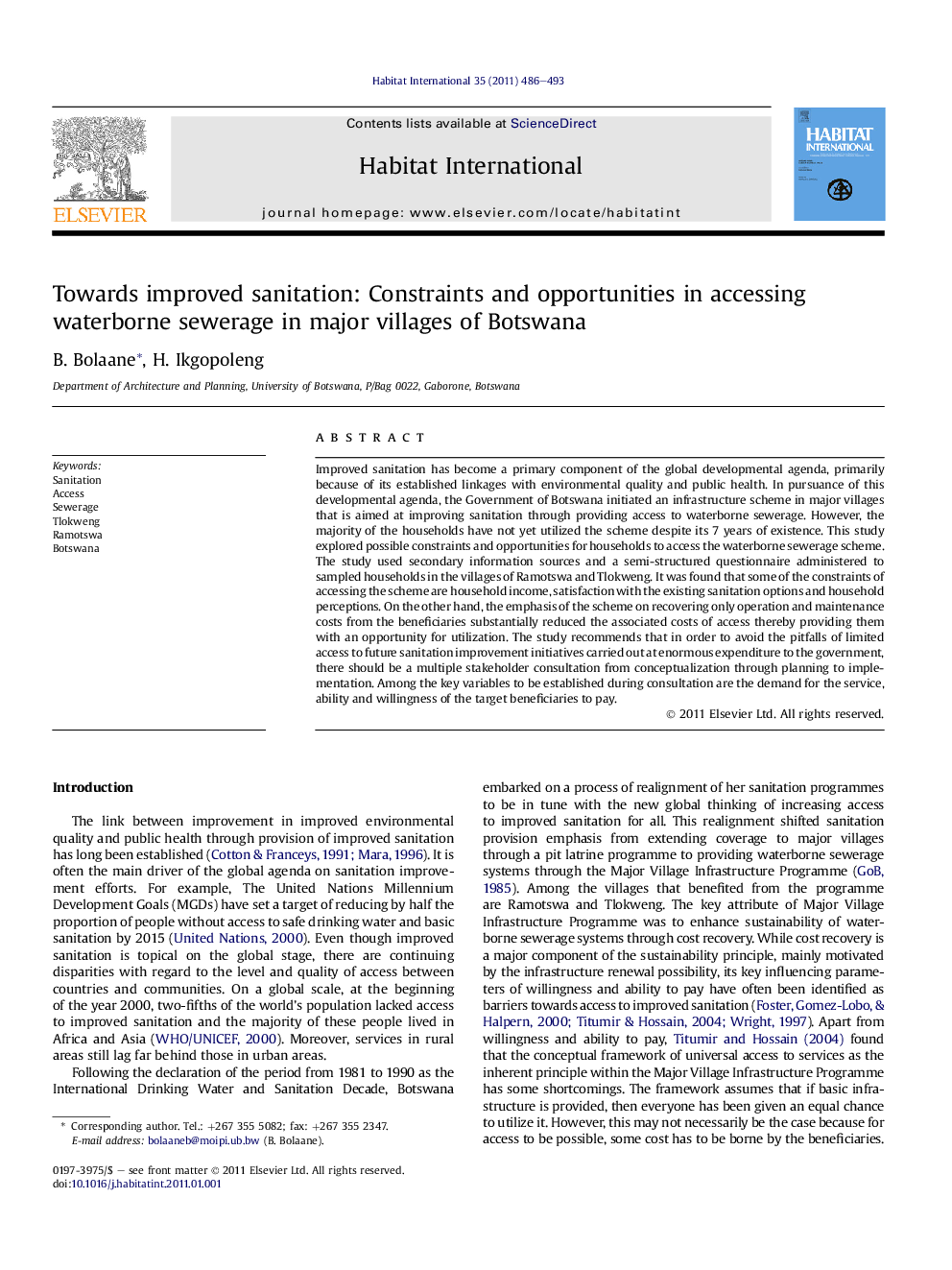| Article ID | Journal | Published Year | Pages | File Type |
|---|---|---|---|---|
| 1048166 | Habitat International | 2011 | 8 Pages |
Improved sanitation has become a primary component of the global developmental agenda, primarily because of its established linkages with environmental quality and public health. In pursuance of this developmental agenda, the Government of Botswana initiated an infrastructure scheme in major villages that is aimed at improving sanitation through providing access to waterborne sewerage. However, the majority of the households have not yet utilized the scheme despite its 7 years of existence. This study explored possible constraints and opportunities for households to access the waterborne sewerage scheme. The study used secondary information sources and a semi-structured questionnaire administered to sampled households in the villages of Ramotswa and Tlokweng. It was found that some of the constraints of accessing the scheme are household income, satisfaction with the existing sanitation options and household perceptions. On the other hand, the emphasis of the scheme on recovering only operation and maintenance costs from the beneficiaries substantially reduced the associated costs of access thereby providing them with an opportunity for utilization. The study recommends that in order to avoid the pitfalls of limited access to future sanitation improvement initiatives carried out at enormous expenditure to the government, there should be a multiple stakeholder consultation from conceptualization through planning to implementation. Among the key variables to be established during consultation are the demand for the service, ability and willingness of the target beneficiaries to pay.
► We establish constraints and opportunities to access waterborne sewerage scheme. ► Low income households unable to pay for waterborne sewerage. ► Households satisfied with existing technology not willing to change to new ones. ► Prevailing attitude that sanitation is a right and should be provided free of charge. ► Sustainable sanitation should be ensured by multiple stakeholder participation.
